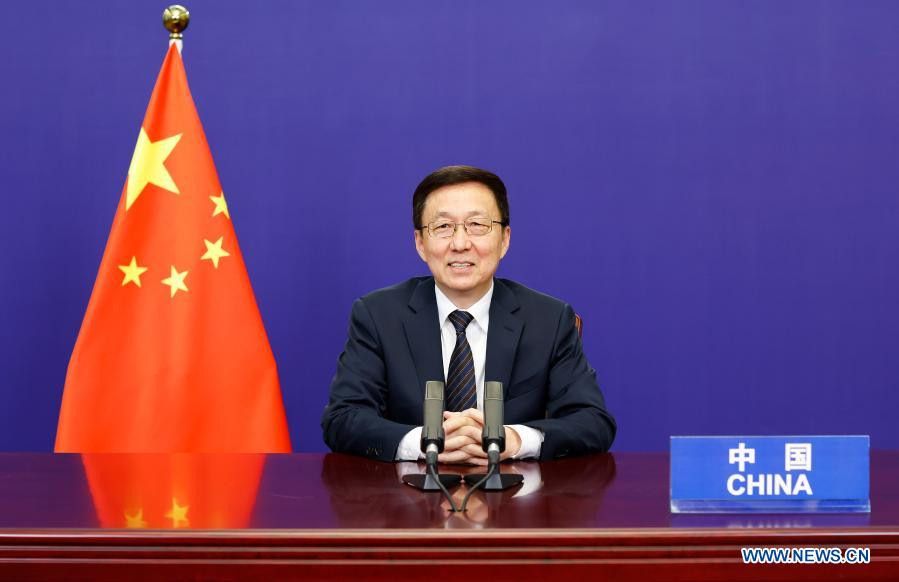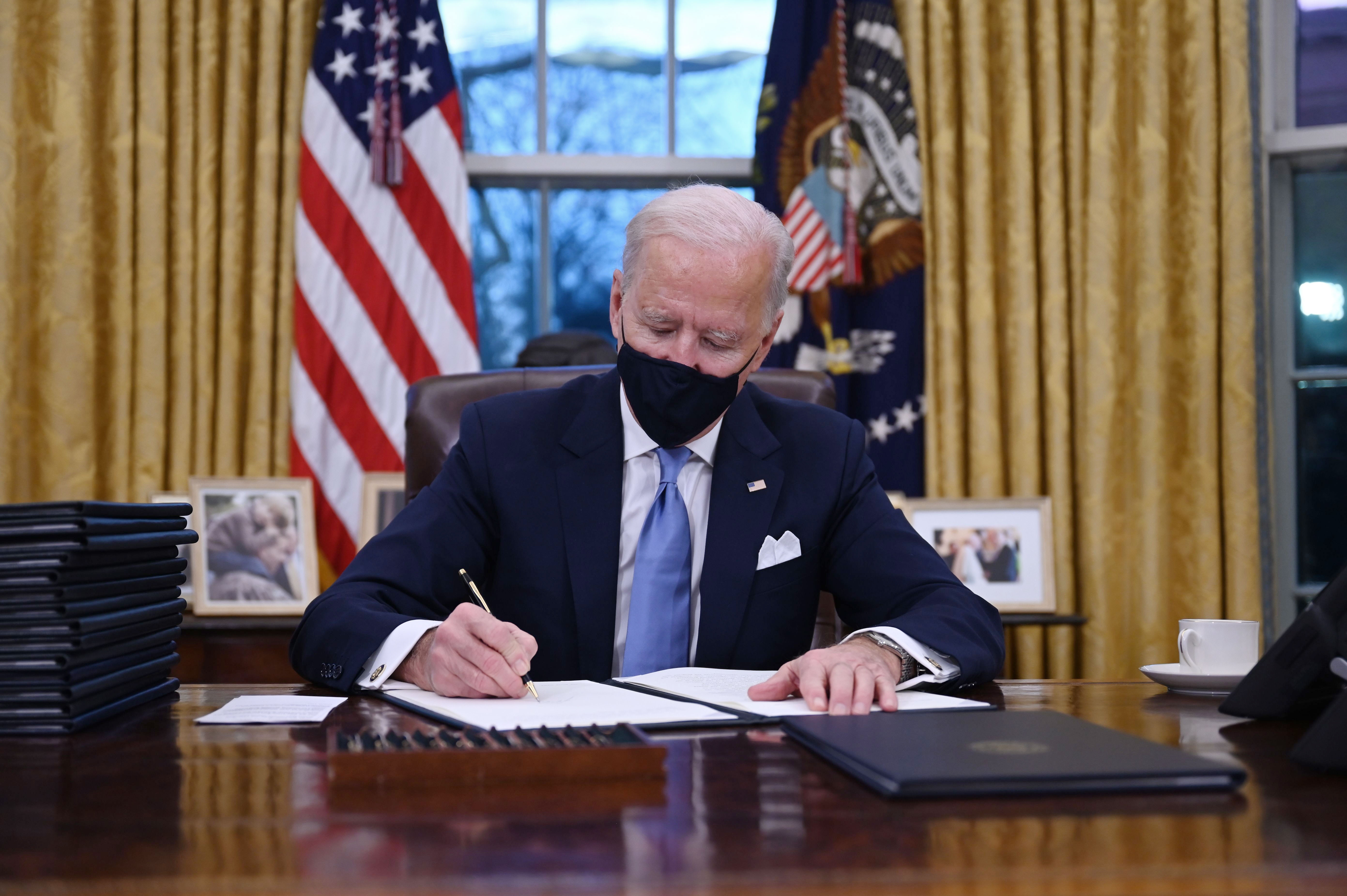China will "gradually raise" its retirement age for the first time since the 1950s, as the country confronts an ageing population and a dwindling pension budget.
Men will see an increase from 60 to 63.
China's current retirement ages are among the lowest in the world.
According to the plan passed on Friday, the change will set in from 1 January 2025, with the respective retirement ages raised every few months over the next 15 years, said Chinese state media.
Retiring before the statutory age will not be allowed, state news agency Xinhua reported, although people can delay their retirement by no more than three years.
Starting 2030, employees will also have to make more contributions to the social security system in order to receive pensions. By 2039, they would have to clock 20 years of contributions to access their pensions.
The state-run Chinese Academy of Social Sciences said in 2019 that the country's main state pension fund will run out of money by 2035 - and that was an estimate before the Covid-19 pandemic, which hit China's economy hard.
The plan to raise retirement ages and adjust the pension policy was based on "a comprehensive assessment of the average life expectancy, health conditions, the population structure, the level of education and workforce supply in China," Xinhua reported.
But the announcement has drawn some scepticism and discontent on the Chinese internet.
"In the next 10 years, there will be another bill that will delay retirement until we are 80," one user wrote on a Chinese social media site Weibo.
"What a miserable year! Middle-aged workers are faced with pay cuts and raised retirement ages. Those who are unemployed find it increasingly difficult to get jobs," another chimed in.
Others said they had anticipated the announcement.
"This was expected, there isn't much to discuss.
"Men in most European countries retire when they are 65 or 67, while women do at 60. This is going to be the trend in our country as well," one Weibo user said.
China's huge population has fallen for a second consecutive year in 2023 as its birth rate continues to decline.
Meanwhile, its average life expectancy has risen to 78.2 years, officials said earlier this year. According to the World Health Organization, almost a third of China's population - about 402 million people - will be aged over 60 by 2040, up from 254 million in 2019.
A Looming Demographic Crisis
A slowing economy, shrinking government benefits and a decades-long one-child policy have created a creeping demographic crisis in China, our China correspondent Laura Bicker wrote earlier this year.
China's pension pot is running dry and the country is running out of time to build enough of a fund to care for the growing number of elderly.
Over the next decade, about 300 million people, who are currently aged 50 to 60, are set to leave the Chinese workforce. This is the country's largest age group, nearly equivalent to the size of the US population.
So who will look after them? The answer depends on where you go and who you ask.
Gradual Shift, Gradual Implementation
But all that is about to change as the Chinese government passed new legislation on Friday laying out a plan to delay the retirement age over the course of 15 years, starting January 1, according to state news agency Xinhua.
Existing rules stated that men in urban areas could retire at 60 and receive their pensions, and women at 50 or 55, depending on their occupation. The new rules gradually push back the age to 63 for men, and to 55 and 58, respectively, for women.
The measures, which were approved by the country’s top lawmaking body following signaling from a key Communist Party body in July, also lay out plans to extend the minimum working period for employees to receive a monthly pension from 15 to 20 years, with changes starting from 2030.
They also include some flexibility in retirement age, especially for those who have already completed the minimum working period.
The change, which the government has been considering for about a decade, comes as China’s economy slows while Beijing grapples with the looming consequences of a rapidly aging population and a pension funding crisis.
A Double-Edged Sword
The announcement sparked immediate widespread discussion – and backlash – across Chinese social media.
Some social media users appeared encouraged that the changes weren’t more drastic and included some flexibility. One comment on the X-like social media platform Weibo that garnered thousands of likes said: “As long as there are options to retire or not based on our will, I have no objections.”
Others voiced discontent over the prospect of delayed access to their pension and years of extra work, as well as concern about whether the policy would strain China’s already tough job market, where unemployment levels among young people remain stubbornly high.
“Delayed retirements just means you can’t get your pension until you hit 63, but it doesn’t mean everyone will have a job until then!” wrote one user.
Chinese state media in recent days has hailed the anticipated changes as an urgent and necessary reform for an outmoded system, highlighting how the existing policy had been in place since the 1950s when life expectancies and education levels were both lower.
Matching National Realities
“The current retirement policy framework has remained unchanged for 73 years. Especially since the reform and opening up (starting around 1978), the demographic, economic and social landscape has transformed dramatically,” demographer Yuan Xin was quoted by state media as saying earlier this week.
The existing retirement age is seriously mismatched with the current “national realities” and the new normal of future economic and social development, said Yuan, who is deputy head of the China Population Association and a demographer at Nankai University in Tianjin.
China’s existing retirement ages are lower than those in a number of major economies. The 2022 average standard retirement ages across Organization for Economic Co-operation and Development (OECD) countries stood at 63.6 years old for women and 64.4 years old for men.
Other countries have also grappled with how to manage the retirement age. Major protests erupted in France in 2023 in response to a government attempt to raise the retirement age from 62 to 64. The US has also been debating retirement reform and gradually increasing the retirement age, with Social Security incentives in place for retirees who delay taking benefits until age 70.
Getting Old Before Getting Rich
The changes come as China’s leadership has become increasingly concerned by the country’s demographic challenges, which some economists warn could see the still-developing country fall into the trap of “getting old before it gets rich.”
China’s population has shrunk for the past two years, and it 2023 it recorded its lowest birth rate since the founding of Communist China in 1949, despite a reversal of the country’s long-standing “one-child policy” from 2016 and government-led efforts to incentivize more young couples to have children.
China’s elderly now account for more than 20% of the population, according to a report earlier this month from the Ministry of Civil Affairs, which said about 297 million were aged 60 and above by the end of last year.
Demographers cited in state media have said that, between 2030 and 2035, the elderly population will make up 30% of the total population. That is likely to increase to more than 40% of the population by the middle of this century – making China a “super-aged society.”
Pension Pressure
Those projections have seen the government ramping up efforts to expand elderly care services and boost private-sector efforts to build a “silver economy.”
It’s also put heightened focus on the ability of the country’s pension system to handle a shrinking workforce alongside its burgeoning elderly population.
A 2019 report from the Chinese Academy of Social Sciences, a top government think tank, forecast that China’s state pension fund would run dry by 2035 because of its dwindling workforce. Years of strict pandemic-related restrictions, which have shrunk the coffers of local governments, could make the pension shortfall even more pronounced.
Early last year, thousands of elderly people protested in several major cities against big cuts to their medical benefits payments, fearing that local governments were dipping into their individual accounts to cover the shortages in the state pension fund.
Even for those of working age, employment remains a steep challenge following the pandemic and a raft of government-led industry crackdowns in recent years. In July, the youth unemployment rate hit 17.1% among those aged between 16 and 24 who are not students, and was 6.5% for those 25 to 29 that month, according to state media.
Employers continue to pull back on hiring as the economy slows and people, especially in tech sectors, have widely noted age discrimination in hiring for those over 35.
The new regulations also call on the state to “support young people’s employment and entrepreneurship, strengthen the development of employment positions for older workers … and strengthen the prevention and governance of employment age discrimination.”
A Balancing Act
The move to increase retirement ages comes at a time when China is grappling with multiple economic and social challenges. The government is trying to find a delicate balance between ensuring the sustainability of the pension system and addressing the concerns of workers.
The phased implementation of the policy over 15 years is a sign that the government is trying to be cautious and avoid a sudden shock to the workforce. However, the long-term implications of the policy will depend on how effectively the government addresses the other challenges facing the Chinese economy and society, including the need to create more jobs, improve social safety nets and reduce age discrimination in the workplace.
The success of this policy change will depend on its ability to help workers navigate the changing job market and ensure a comfortable retirement for a growing elderly population. It remains to be seen whether the policy will be effective in mitigating the demographic pressure facing the country or will lead to further social and economic instability.
Beyond the Numbers
The decision to raise the retirement age is a reflection of the complex economic and social realities facing China. It is a necessary step to ensure the sustainability of the pension system and address the country’s aging population. However, it is also a move that will have a significant impact on the lives of millions of Chinese workers.
The implementation of the policy will require careful planning and coordination. The government needs to work with businesses and workers to ensure a smooth transition and minimize the negative consequences of the change.
The future of China’s workforce and the pension system is tied to the success of this policy. It is a move that will have long-lasting consequences for the country and its citizens.

















